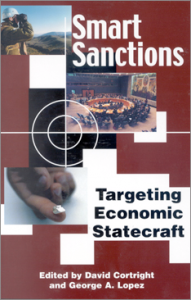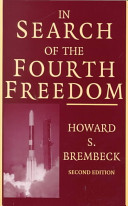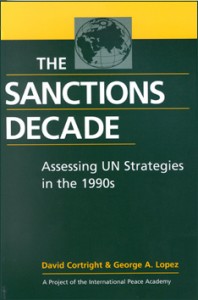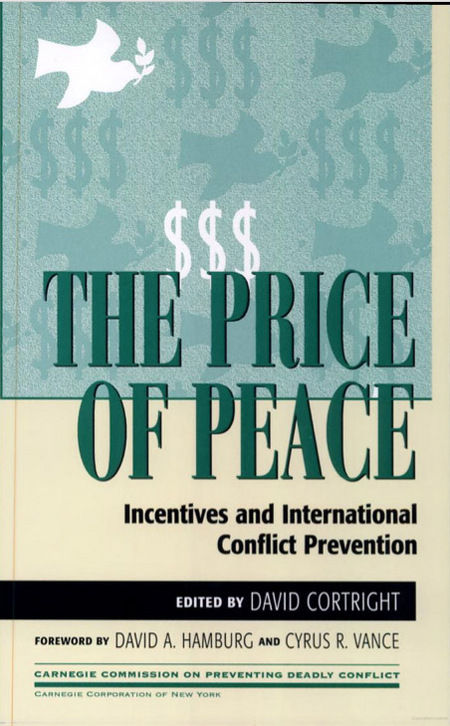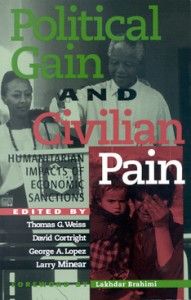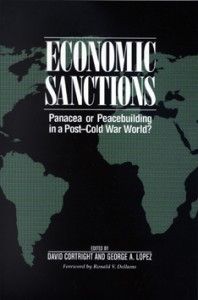Smart Sanctions: Targeting Economic Statecraft
Book — 2002
In recent years, international attention has turned toward the use of targeted, “smart” sanctions that minimize unintended humanitarian consequences and focus coercive pressure on responsible decision makers. Some of the world’s leading sanctions experts and practitioners join together in this book to provide the first published account of the emerging theory and practice of smart sanctions. The essays examine recent uses of targeted financial sanctions, travel sanctions, and arms embargoes, and offer recommendations for improving their design and implementation.
